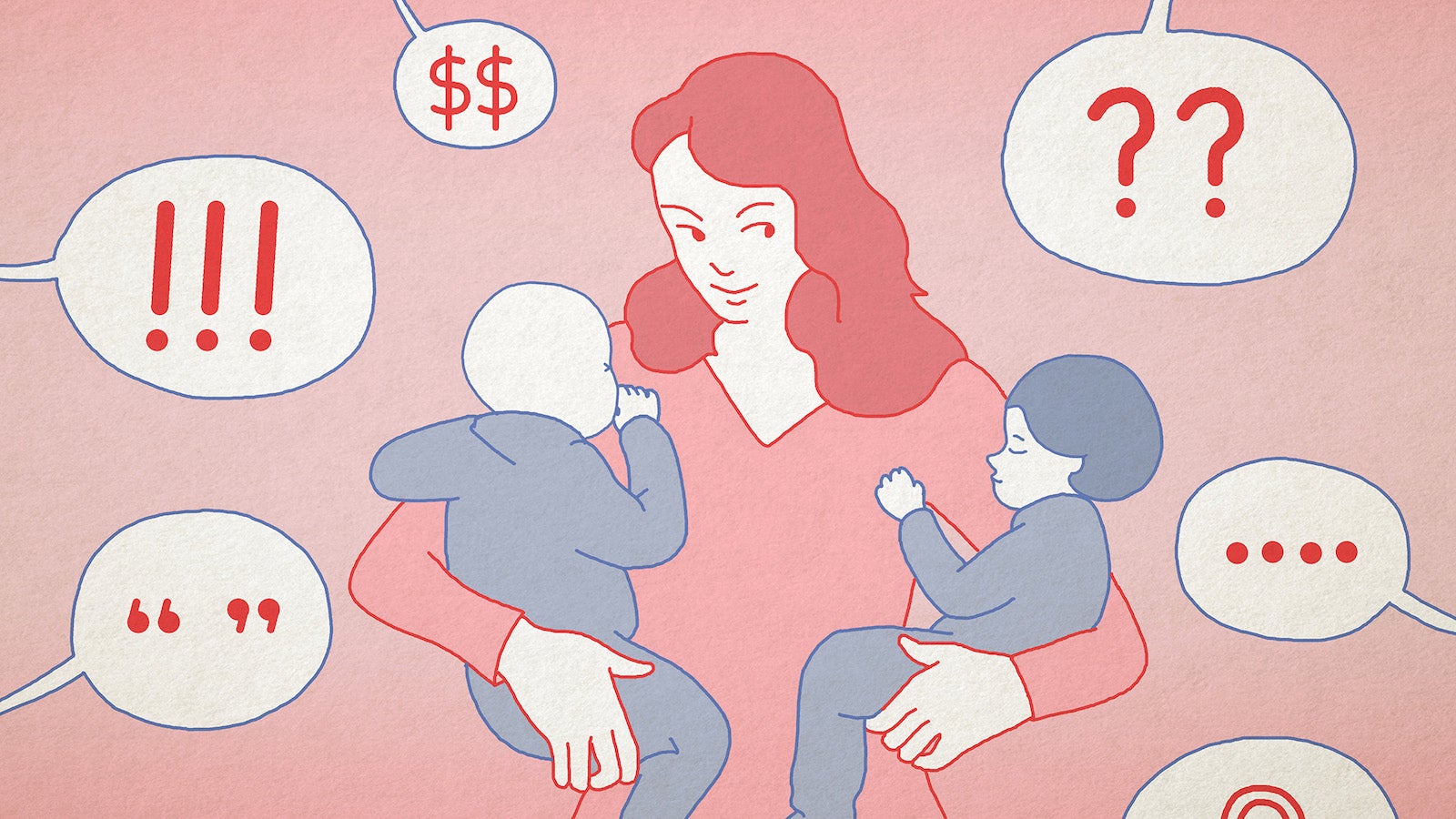How many kids do I need before people stop asking me when I’m having another?
With Thanksgiving right around the corner, many adult-ish Americans are gearing up to indulge in ungodly amounts of turkey, survive uncomfortable family dynamics and—if you’re a woman—fend off Grandma’s well-meaning queries regarding when you’re going to start having babies.


With Thanksgiving right around the corner, many adult-ish Americans are gearing up to indulge in ungodly amounts of turkey, survive uncomfortable family dynamics and—if you’re a woman—fend off Grandma’s well-meaning queries regarding when you’re going to start having babies.
It seems that being asked (er, harassed) about your uterus’s occupancy status has become an uncomfortable rite of passage for many women, starting in their 20s and continuing on for—in some cases—decades. The ubiquitous expectation that women are just aching to reproduce is everywhere you look: in conversations with friends and family, on television, in magazines. And while childfree women may bear the brunt of this social pressure, I’m here to tell you that it unfortunately doesn’t end once you actually start your family.
After I got married, the gleam in my mother’s eye didn’t go unnoticed. I knew what she wanted, and what she wanted was grandbabies. Badly. And at first I was more than happy to oblige. Just two years after tying the knot, I gave birth to my daughter. Although my pregnancy was planned and my daughter very much loved, I declared I was “one and done” after a nasty bout with postpartum depression.
In a telling harbinger of what was to come, my declarations were met with “Oh, you’ll change your mind” and “You can’t have just one! She’ll need a playmate!” Such comments eventually lost their faux-polite tone and escalated into quasi-demands: “When are you having another?” Although they were right in some respects–I eventually softened to the idea of a second baby–the invasive questioning was a source of semi-constant frustration.
Now a mother of two, a part of me is dreading another holiday season filled with doting relatives and concerned family friends. Because it turns out that the pressure to reproduce has been only nominally lessened by my past fertility. Mere weeks after delivering my son, I started hearing a familiar refrain: “You make such beautiful babies. It’s a shame to stop at two!” And worse, “You’ll regret having only two.”
Only two?! Being the primary caregiver of two young children is physically, mentally and emotionally exhausting. At times, it’s downright grueling. Let me be clear: I am done. My uterus is closed for business.
There are, of course, logistical reasons behind my decision—money being a big reason. But my decision is primarily a safeguard for my own happiness and sanity. I love my children, but I also love myself. This means setting firm limits on how thin I’m willing to spread myself, so I can continue to enjoy life’s other (non-Mommy) pleasures. If I had more children, I’d have to relinquish my other loves: travel, writing, and most importantly, “me” time. I’m honestly not willing to do that. And I’m not afraid to say so.
Luckily, my husband and I are on the same page, as is my IUD. Nonetheless, I’m learning not to expect the comments and external pressure to end as long as I’m still of childbearing age.
I know I’m not alone. Mothers everywhere are frequently questioned about their reproductive plans. On one hand, this is reassuring; I’m not experiencing this in a vacuum. On the other, it raises an important question: Why do people think it’s acceptable to ask moms about their family planning?
While there’s probably more than one answer to this quandary, I’m placing my bets on prescribed gender roles and expectations. For starters, motherhood has and continues to be inextricably linked with feminine ideals. According to Julia McQuillan, a University of Nebraska-Lincoln sociologist and lead author of a 2012 study on the pressures to have children, “Motherhood is so highly connected with adult femininity in the United States that many women feel that they need to be mothers.” Crossing the threshold into mothering, it seems, is the “womanly” thing to do. Taking this logic a step further, it’s not hard to see why some people seem to believe that the more kids you have, the better a woman you are (so long as you’re not a woman of color or low-income, that is.)
Moreover, once you become a mother, it’s assumed that your individual identity takes a backseat to motherhood, or is (preferably) subsumed entirely. Women are expected to retire their personal interests and enjoyments the moment they become mothers; their kids become the sun and they the lonely planets orbiting it.
This perspective reduces women to a sum of their reproductive parts and duties, obliterating our complexity and individuality. Mothers are more than incubators and caretakers. We are also businesswomen, activists, travelers, academics, athletes, artists and much, much more.
So please, stop asking moms when they’re going to have more kids. Our vaginas aren’t ATMs ready to dispense babies on demand, and the number and spacing of children is a personal decision that demands respect. While our children are amazing, they don’t singularly define our greatness, nor does our ability to keep having them define our worth as a woman.